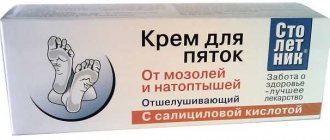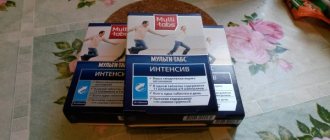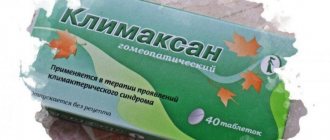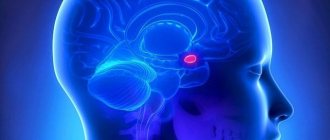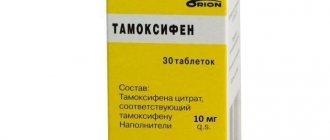Menopause is one of the physiological processes in the state of the female reproductive system. It is characterized by a gradual regression of menstrual function until it completely disappears.
This process is inherent in any female body, the only difference may be the age of manifestation. On average, a woman experiences menopause between the ages of 50 and 55, but this range varies from person to person, and some women experience it earlier or later.
Since menstruation is a hormonally dependent process, there is a decrease in two main hormones, estrogen and progesterone, resulting in gradual atrophy and sclerosis of the ovaries. This condition is manifested by a large number of symptoms, the main of which are hot flashes.
The severity of the onset of menopause can vary; some women experience this hormonal crisis quite calmly, while for others it is characterized by serious health problems.
How to reduce hot flashes and how to deal with excessive sweating?
To reduce the negative consequences of hormonal disorders during menopause, you need to take appropriate medications, adjust your diet, and adjust your work and rest schedule. However, that's not all. There are some simple rules to reduce the unpleasant symptoms of attacks:
- Avoid going to the bathhouse and sauna. Hot air in steam rooms causes excessive sweating.
- Spend less time outside on hot days, and also stay as far as possible from heat sources - fireplaces, stoves, heaters, bonfires.
- Stop smoking, eating hot, fatty and spicy foods, coffee, alcohol and sweets.
- A woman's diet during menopause should include more fresh fruits and vegetables, dairy products, cereals, wheat bran, chicken eggs, and nuts.
These products have a beneficial effect on female hormonal levels, which helps reduce the symptoms of menopause. It is also worth including foods rich in so-called phytohormones in your diet. In their composition they are close to human hormones, but are not as effective. Eat: coconut, soybean and olive oil, lentils, flax seeds, garlic, chickpeas, beans, barley, rye. - Drink at least 1.5 liters of water per day. Due to increased sweating during menopause, the body quickly loses fluid, so it must be replenished in a timely manner.
- Do not wear synthetic clothing. It is better to give preference to cotton, silk and linen items. The exception is fleece clothing: this artificial material dries quickly and provides the necessary moisture removal.
- Avoid outfits with high collars. Choose clothes with a neckline and cutouts near the neck.
- Change synthetic bedding to natural ones. This will help you sweat less while you sleep.
- If you experience intense hot flashes, you can carry a spare set of clothes with you. If you get very sweaty, you will have the opportunity to change clothes.
- Observe personal hygiene rules. To avoid the unpleasant odor of sweat, it is recommended to use a high-quality antiperspirant that prevents the appearance of unpleasant odor.
- Make time for rest, try to be less nervous and engage in static sports - Pilates, yoga, stretching, callanetics. During this difficult period, regular seaside holidays are highly desirable for the female body, but it is important to avoid hot months (July, August) and choose more comfortable and cooler ones - May, June and September.
Treatment of hot flashes during menopause
What factors aggravate the situation?
We list the factors that can aggravate the situation with vasomotor syndrome:
- frequent stressful situations, strong emotional reactions, long periods of psycho-emotional stress;
- a menu containing a large number of dishes that increase blood circulation and heartbeat: hot spices, black tea, caffeinated drinks, alcohol;
- means that accelerate metabolic processes. They are prescribed to combat weight gain - another “scourge” of menopause;
- everything that leads to overheating: increased indoor air temperature, items made of synthetic fabrics, out-of-season clothing, etc.;
- some types of diseases: hyperfunction of the thyroid gland, low or high blood glucose levels, obesity, etc.;
- ethnicity;
- sedentary and inactive lifestyle;
- presence of bad habits. Especially nicotine addiction.
These are only the most common factors that influence the frequency of occurrence of the symptom complex.
What to take for hot flashes during menopause?
Most often, doctors prescribe menopausal hormone therapy (MHT) to patients. Normalizing hormonal levels by taking such drugs not only reduces sweating, but also improves psycho-emotional state, helps cope with mood swings, increases performance and optimizes concentration.
However, it must be taken into account that drugs that compensate for the lack of estrogen can activate the launch of developing oncological diseases - in particular, breast, endometrial or ovarian cancer and aggravate chronic diseases and the risk of thrombosis. Therefore, treatment with hormonal drugs should occur exclusively according to the regimen drawn up by the doctor.
In recent years, it has become possible to replace the use of traditional tablet medications with the use of hormonal patches, gel forms, and intrauterine complexes.
They are considered less dangerous in terms of the possibility of venous thrombosis.
How long does it take and when will it end?
The nature and course of a fever attack varies from person to person. An attack can last 30 seconds, several minutes, and sometimes its duration reaches sixty minutes or more.
Prolonged attacks are not permanent. More often they appear for a few minutes and then go away.
Therefore, you should not perceive a protracted episode as permanent: this creates even greater tension and anxiety.
IMPORTANT!
The daily frequency of hot flashes can vary: from ten episodes to twenty or more. The most common times for hot flashes to occur are evening and night.
Hot flashes during menopause: treatment without hormones
Expert opinion
Many women cannot take hormonal medications due to certain health conditions. For example, if there is a risk of breast cancer, a tendency to form venous blood clots, cerebrovascular accident (stroke) and heart attack, hormone replacement therapy is not recommended, since the potential risks from it may be higher than the benefits.
Obstetrician-gynecologist of the highest category Oksana Anatolyevna Gartleb
To mitigate the intensity of menopause symptoms, not only hormone replacement therapy, but also other drugs are used. Instead of hormones, you can use the following:
Drugs that normalize blood pressure
During menopause, changes in the water-salt balance occur, resulting in fluid retention in the body and an increase in blood volume. This leads to increased blood pressure during hot flashes. Taking medications that lower blood pressure helps reduce sweating and the feeling of heat during such conditions.
Sedatives and antidepressants
These medications, given in small doses, help reduce the stress caused by hot flashes. In addition, taking antidepressants and sedatives in some cases reduces the frequency and intensity of hot flashes by normalizing the condition of blood vessels.
Expert opinion
Remember that antidepressants can be quite harsh on your health and may cause some side effects. Therefore, their prescription and selection of the appropriate dosage should be handled exclusively by a specialized specialist.
Obstetrician-gynecologist of the highest category Oksana Anatolyevna Gartleb
Vitamin and mineral complexes, dietary supplements
During menopause, it is recommended to take complexes rich in retinol, tocopherol, ascorbic acid, B vitamins, vitamin D, calcium, magnesium, boron.
Dietary supplements based on phytoestrogens. Phytohormones include coconut oil, chamomile, calendula, ginseng root, grapes, dates, pomegranates, red clover, alfalfa, flax, licorice, etc.
Tip 3: Consider Hormone Replacement Therapy
Since menopause symptoms are associated with a stop in the production of hormones in the ovaries, the gynecologist may offer the patient so-called hormone replacement therapy (HRT). It consists of delivering missing hormones to the body in order to balance them to the desired level.
HRT is effective in reducing menopausal symptoms, including hot flashes. However, it should be remembered that this treatment option is not suitable for every woman. Contraindications to hormone replacement therapy will include: breast cancer, endometrial cancer and thromboembolism.
Hot flashes during menopause: treatment with folk remedies
Not only traditional medicines, but also traditional medicine methods help to cope with fever and sweating during menopause. They should not be considered as the main means of therapy, but they can act as effective additional means.
Various herbs are used to combat the unpleasant symptoms of menopause. You can prepare decoctions and infusions from them, for example:
- Hawthorn fruits and flowers. Rinse 5 g of prepared raw materials, place in a thermos and pour a glass of boiling water. Leave for an hour. Take half a glass 2 times a day before meals. The infusion not only reduces the frequency and intensity of hot flashes, but also improves heart function and vascular condition.
- Red clover. Red clover belongs to the category of phytoestrogens, so this plant is actively used to reduce hot flashes. To prepare the infusion you need to take 2 tbsp. dry crushed red clover herb, place in a thermos and pour a glass of boiling water, leave to infuse for 10 hours. Take the resulting infusion before meals, 50 ml.
- Sage. It is useful to take a decoction. To prepare it, you need to take 1 tbsp. dry sage, pour 1.5 tbsp. boiling water and simmer for 5 minutes over low heat. Then cool the broth, strain and drink as tea throughout the day.
- Red brush root (rhodiola tetrapartite). Before taking products based on red brush, you should consult your doctor, as this plant is contraindicated for women suffering from hypertension. Pour the dried crushed root (1 tbsp) into a glass of water and boil for a quarter of an hour. Cool the broth, strain and take 100 ml before meals three times a day.
- Borovaya uterus.
This plant helps to compensate for the lack of estrogen, as it belongs to the category of phytohormones.To prepare a decoction of boron uterus, you need to take a tablespoon of the dry plant, pour a glass of boiling water over it and simmer over low heat for 5 minutes. Then strain, cool the broth and drink 100 ml before meals three times a day.
- Dry rosemary. To prepare the decoction, take 1 tbsp. raw materials, pour a glass of boiling water and boil for a quarter of an hour. Then strain, cool and take the resulting product before meals three times a day.
Menopause in a woman without hot flashes
Symptoms of manifestation
- A sharp flow of blood to the upper body (a feeling of heat occurs in the chest and arms, and the skin on the face and neck turns red).
- Before the manifestation of hot flashes, increased sensitivity is felt, which means that the onset of the process can be predicted.
- Headache, nausea, dizziness, weakness appear, and the heartbeat becomes rapid.
- Before and during an attack, the temperature rises and sweating increases. For some, sweat covers the entire body, while for others it appears only above the upper lip.
- The “favorite time” of tides is evening and night hours.
- After a drop in body temperature, chills appear.
This condition can last from several minutes to half an hour. In 10% of cases, you have to call an ambulance because some women do not tolerate hot flashes well. This is a transitional state, during which the load on the heart increases and blood flow increases.
Pathological hot flashes most often occur in women who have undergone surgery on the reproductive organs or breasts. Also, those who have become victims of cancer are at risk.
Menopause without hot flashes: reality or dream?
Unfortunately, most women experience the unpleasant symptoms of menopause firsthand. However, each of them has a choice: to come to terms with the manifestations of this condition or to alleviate it by taking the right medications.
One of the best remedies for hot flashes during menopause is Klimafemin.
This drug was developed by specialists from the pharmaceutical company VERTEX and has the necessary documents and certificates. The product is distinguished by a balanced composition, which includes natural components: phytoestrogen genistein, coenzyme Q10, grape seed extract and vitamin E. As a result of the use of “Climafemin”, the frequency and intensity of hot flashes decreases, sweating decreases, and the emotional background improves. Sources:
- Menopausal syndrome. Smetnik V.P., Tkachenko N.M., Glezer G.A. and others // M. - 1988. - P. 286.
- Depressive disorders in peri- and postmenopausal women. Yureneva S.V., Kamenetskaya T.Ya. // Journal of gynecology. - 2007. - 9(2). pp. 5-12.
- Mental disorders in women during menopause. Tyuvina N.A. // M.: Kronpress. - 1996. - P. 237.
- https://cyberleninka.ru/article/n/myagkiy-klimaks
- https://cyberleninka.ru/article/n/ispolzovanie-bad-dlya-korrektsii-klinicheskih-proyavleniy-perimeno…
- https://cyberleninka.ru/article/n/sovremennye-podhody-k-diagnostike-prognozirovaniyu-techeniya-i-lec…
Prevention
In order not to be bothered by hot flashes during menopause, what should you do for prevention? Let's give some practical advice. So:
- proper nutrition. Eat as many vegetables and fruits as possible, and a minimum of meat, especially fatty varieties. Black tea is replaced with green tea, coffee with chicory. Exclude or sharply limit: alcohol- and caffeine-containing drinks, salt, spices, hot seasonings. Food is taken at room temperature; too hot or cold food is prohibited.
- Monitor your blood sugar levels and take all measures to regulate them.
- Bad habits. It is important to avoid smoking; nicotine aggravates vascular problems.
- Regular sex.
- Examination by a gynecologist once a year.
- Avoid stuffiness, do not stay in the sun for a long time.
Clothes chosen are loose-fitting, made from fabrics containing natural fibers. Avoid tight belts, fasteners, cuffs, and ties.
Popular questions
Hello!
Constant hot flashes tormented me. I started drinking Gynocomfort Klimafemin. It helped right away. But it turned out that it was not available in any pharmacy! It was difficult to buy only one package. Has this product been discontinued? Hello! Gynocomfort climafemin continues to be produced. You can purchase it in pharmacies that sell other VERTEX products.
Hello, I have up to 10 hot flashes per day, more at night. A year ago I took the drug Femoston 2 for three months, it helped, everything was fine for six months, but it all started again. Is it possible to correct this condition without hormonal drugs?
Hello! The Ginocomfort line of drugs includes the drug Climafemin. It contains antioxidants and phytoestrogens, which will correct the vegetative manifestations of menopause. If there is no effect after 1 month of use, you should consult your doctor again.
Hot flashes, insomnia, what to do? I take Klimanalin, it doesn’t help.
Hello! Vivid vegetative manifestations in the menopause are caused not only by hormonal changes, but also by a possible combination of thyroid pathology - hypothyroidism, vertebrobasilar insufficiency. Therefore, it is advisable: consultation with an endocrinologist or neurologist. OMT ultrasound, flora smear, cytology, which will allow prescribing menopausal hormone therapy in the absence of contraindications. At this stage, pending examination results, you can add Gynocomfort climafemin to treatment. The drug contains phytoestrogens and antioxidants, which has a beneficial effect on well-being and eliminates the symptoms of menopause. The drug is taken 1 t once a day for 3 months.
I am 49 years old and suffered from frequent hot flashes. How to prevent them?
Hello!
These are manifestations of menopausal syndrome associated with the extinction of ovarian function. At this stage, I recommend using a herbal-based drug that allows you to stop bursts of vegetative reactions - Ginocomfort Klimafemin 1 t once a day for 3 months. During this time, conduct an examination: ultrasound OMT, they say. glands, flora smear, oncocytology, oak, lipid spectrum, FSH, TSH levels. Consult a therapist and other related specialists if you have chronic diseases that would be a contraindication for prescribing menopausal hormone therapy. This will help the obstetrician-gynecologist correctly select further treatment. For an accurate diagnosis, contact a specialist
Diagnostics
If you complain of hot flashes, you must visit a general practitioner (family doctor), who conducts an initial examination and refers the patient to a specialized specialist. Women aged 45 and older who experience hot flashes should visit a gynecologist, as in most cases the symptoms are caused by menopause. To find out the causes of paroxysms, the following are prescribed:
- Neurological examination
. The doctor carries out standard diagnostics: determines mental status, checks reflexes and the functioning of the cranial nerves. Particular attention is paid to the assessment of the autonomic nervous system (orthostatic and pharmacological tests), disruption of which often provokes hot flashes. - Instrumental diagnostics
. To identify pathologies of internal organs, ultrasound of the thyroid gland and adrenal glands is necessary; for women, sonography of the pelvic organs is necessary. To study heart function, ECG and EchoCG are used. If central nervous system damage is suspected, either an MRI of the brain or an EEG is necessary. - Blood tests for hormones
. To establish the cause of hot flashes, a complete examination is required, measuring the level of sex hormones (estrogens, progesterone, testosterone in men), hormones produced by the pituitary gland (FSH, LH, ACTH and TSH), and the thyroid gland (T3 and T4). According to indications, an analysis is performed for hormone metabolites in the urine.
As additional methods, general and biochemical blood tests are recommended to exclude metabolic disorders and inflammatory processes. Women are advised to undergo examination by a gynecologist: vaginal examination in speculum, examination of the mammary glands. If the patient shows signs of emotional disturbances or inappropriate behavior, a psychiatric examination is performed.
Drug therapy is selected based on the underlying disease
What determines the duration of an attack?
The duration and nature of hot flashes during menopause depend on the woman’s health, her lifestyle, and physical activity. The main factors that adversely affect the duration of hot flashes can largely be corrected by the woman herself .
These include:
- nervousness, anxiety. The more nervous a woman is, the more painful and longer the hot flashes last;
- eating high-calorie foods provokes obesity, which causes prolonged attacks;
- High cholesterol levels affect the duration of fever.
In addition, the timing of the attack may be influenced by heredity, previous genital surgeries, and duration of sleep.
Based on the results of studies of the menopause and hot flashes, it was found that the level of estrogen does not affect the duration of the fever.
If the cause of the duration of attacks is correctly identified, then it can be corrected.

